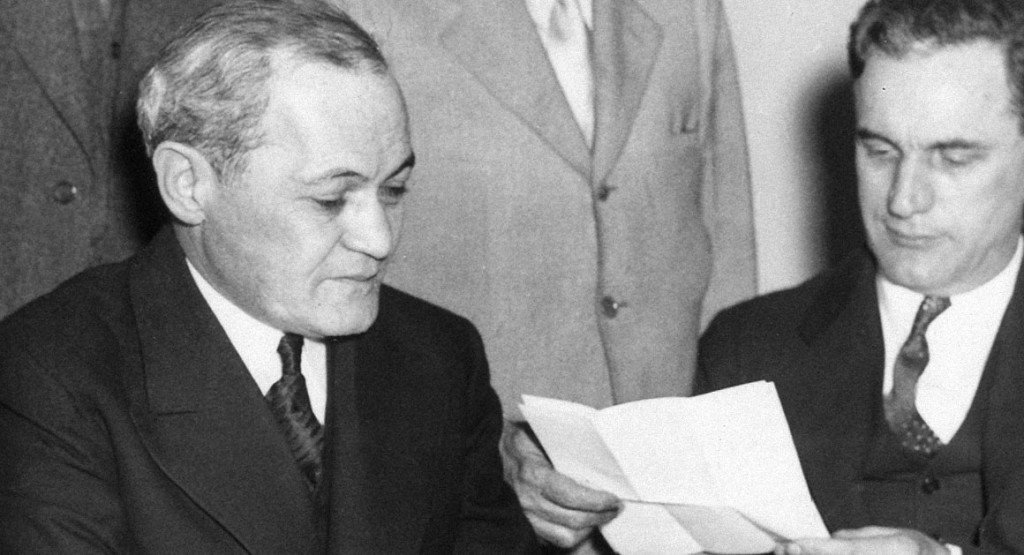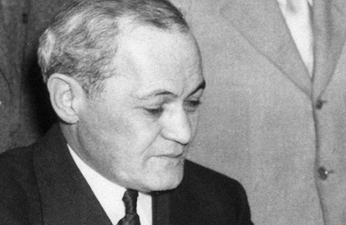Daily Stormer
May 13, 2015

What I find hard to understand is how our greatest ally could betray us.
Samuel Dickstein was short and silver-haired, “a slim little man in a natty gray suit,” the New York Times once characterized him. It was said he never left his red brick home on the Lower East Side of Manhattan without his Malacca walking stick, strolling past the teeming tenements with the air of what his Jewish immigrant constituents would call a big macher.
But Dickstein, a Democrat from New York City who served in the House of Representatives from the early 1920s to the mid-1940s, conducted himself in public life with none of the refined elegance that his self-presentation suggested. At a time when Joseph McCarthy was still an unknown lawyer in Wisconsin, Dickstein invented the modern practice of naming names—broadcasting the identities of suspected subversives without the slightest pretense of due process. If anyone can be credited (or blamed) with introducing the phrase “un-American activities” into the nation’s lexicon, it is he. An unusually shameless publicity hound in a legislative body full of them, Dickstein had a habit of inviting his antagonists to step outside and settle matters like men, once announcing such a fistic challenge to Rep. Thomas L. Blanton of Texas on the House floor. (Blanton appears to have declined.)
So over-the-top as to be ineffectual—he had the poor taste to call for Noel Coward to be barred from the country because the English wit made a quip about the manliness of Brooklyn soldiers—Dickstein left Congress in 1946, and served as a state Supreme Court justice until his death in 1954. In 1963, a portion of the street grid close to where he used to live on East Broadway was christened “Samuel Dickstein Plaza.” No controversy attended the occasion. He then went about the time-honored practice of being forgotten.
That is, until 1999, when Allen Weinstein and Alexander Vassiliev published The Haunted Wood: Soviet Espionage in America—the Stalin Era, which through the use of previously unavailable KGB records went a long way toward convincing those who could be convinced that Alger Hiss and Julius Rosenberg were in fact working for the Soviet Union. The authors also revealed that Stalin had a spy in Congress, an exasperating character who once “blazed up very much, claiming that if we didn’t give him money he would break with us,” according to his Soviet contact. To this day, Sam Dickstein is the only known U.S. representative to have served as a covert agent for a foreign power. His codename was Crook.
